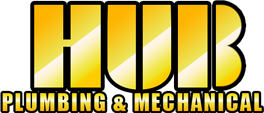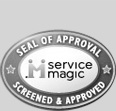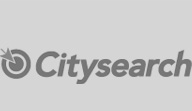Per the Plumbing Foundation of the City of New York:
Local Law 152 of 2016 – Periodic Inspections of Building Gas Piping FREQUENTLY ASKED QUESTIONS (FAQs)Updated January 23, 20201. What is LL152 of 2016? LL152 was passed by the NYC Council in 2016 as part of a gas safety package. LL152 specifically requires that NYC building owners have their building gas piping inspected periodically.2. When does LL152 go into effect? LL152 went into effect January 1, 2019. However, full implementation of the law (i.e. commencement of inspections) could not go into effect without the adoption of rules by the NYC Department of Buildings (DOB). DOB issued final rules on September 23, 2019. While these rules became effective November 2, 2019, due to the provisions of the rules, no inspections can begin until January 1, 2020.3. Who must comply? Owners of all buildings except those in occupancy group R-3 (2 families or less). The estimated total amount of buildings affected is approximately 198,000 in NYC.4. What must be inspected? LL152 requires all exposed gas piping from point of entry of gas piping into the building, including building services meters, and all gas piping in public spaces, hallways, corridors, and mechanical and boiler rooms, up to individual tenant spaces (this does not include gas piping within apartments).5. When does my building have to be inspected? The rules implementing LL152 breakdown the inspection cycle by community districts within boroughs. See the below chart. DATE RANGE FOR INSPECTIONJanuary 1, 2020 – December 31, 2020 January 1, 2021 – December 31, 2021 January 1, 2022 – December 31, 2022 January 1, 2023 – December 31, 2023BUILDINGS IN COMMUNITY DISTRICTS1, 3 and 10 in all boroughs2, 5, 7, 13, and 18 in all boroughs4, 6, 8, 9, and 16 in all boroughs11, 12, 14, 15, and 17 in all boroughs
1 Disclaimer: This document is supplied for informational purposes only for both building owners and licensed master plumbers, but is not intended to constitute legal advice or the viewpoint of the Plumbing Foundation City of New York, Inc. We advise consultation with an attorney for compliance with LocalLaws.
6. After the initial inspection, when is the next time my building has to be inspected? After the initial inspection of your building, you then must have your building inspected every four years, with the same due date of December 31st of that year.7. When do new buildings have to be inspected? New buildings have to be first inspected the 10th year from the date of the certificate of occupancy and then subject to the cycle as noted in the above chart.
8. Must tenants be notified when there is an inspection? Because the law explicitly excludes piping within tenants’ spaces and because there has been no requirement issued by DOB to the contrary, there is no need to give prior notice to tenants of the inspection date. However, LMPs will need full access to all public spaces or the inspection can not be completed.
9. What if my building does not have gas piping? Owners of buildings that contain no gas piping must submit to DOB a Gas Piping Inspection Certification (see box 4), signed and sealed by a registered design professional. The Inspection Certification must be submitted every four years.
10. What does the inspection look for? LL152 inspections require the qualified gas piping system inspector (see description below) to look for evidence of excessive atmospheric corrosion or piping deterioration; illegal connections; non-code compliant installations, as well as the following conditions which must be reported to the owner, utility company, and DOB immediately: gas leaks; illegal connections/ non-code compliant installations; and any condition defined as “Class A” by the utility company, which is considered an imminently dangerous condition. Gas piping system inspectors must use a portable combustible gas detection device for inside leakage surveys.11. What type of portable combustible gas detection device is acceptable for LL152 purposes? DOB accepts devices approved by the New York State Department of Public Service (DPS) for inside leakage surveys.12. What is the inspection filing process? LL152 inspections must occur within the calendar year denoted on the above chart for those applicable buildings.2Disclaimer: This document is supplied for informational purposes only for both building owners and licensed master plumbers, but is not intended to constitute legal advice or the viewpoint of the Plumbing Foundation City of New York, Inc. We advise consultation with an attorney for compliance with LocalLaws.
● Within 30 days of the inspection, the licensed master plumber (LMP) must provide to the building owner a Gas Piping System Periodic Inspection Report (GPS1).
● Within 60 days of the inspection, the owner must submit to DOB a Gas Piping System Periodic Inspection Certification (GPS2) signed and sealed by the LMP who conducted or supervised the inspection.* There is no filing fee.● The DOB’s website to access the forms is here. In addition, here is the link to the submission portal.○ According to DOB, the law and rule state that the owner must submit the GPS2 form that has been completed by the LMP. *Please note that the DOB rules have created confusion on the required filing date (the rules read with the law require filing between October-December only, but that is not the case, the rules are to be revised according to DOB).
● If the Inspection Certification submitted to DOB indicates that conditions requiring correction were identified in the Gas Piping System Periodic Inspection Report submitted to the owner, the owner must submit to DOB, within 120 days of the inspection, an Inspection Certification signed and sealed by the LMP who conducted the inspection, stating that the conditions have been corrected.
● If the Inspection Certification submitted to DOB indicated that additional time was needed to correct the condition(s) identified in the Inspection Report, the owner must submit, within 180 days of the inspection, an Inspection Certification signed and sealed by an LMP stating that all conditions have been corrected.
● Correction of conditions identified in the Inspection Report must be performed in compliance with the NYC Construction Codes, including obtaining any required work permits.
● All reports and certifications must be kept on file by the inspection entity and the building owner for 10 years.13. What happens if an unsafe or hazardous condition is observed? If an inspection reveals any unsafe or hazardous condition(s), the LMP must call 911, immediately notify the applicable utility company first as well as the building owner and3Disclaimer: This document is supplied for informational purposes only for both building owners and licensed master plumbers, but is not intended to constitute legal advice or the viewpoint of the Plumbing Foundation City of New York, Inc. We advise consultation with an attorney for compliance with LocalLaws.
DOB. The building owner must take immediate action to correct the condition(s) in compliance with the New York City Construction Codes and any required permits.14. How should the LMP notify the DOB of the unsafe or hazardous condition?LMPs should immediately report such conditions by calling 311 or by contacting the DOB Plumbing Enforcement Unit during regular business hours at (212) 393-2557.15. What happens if building owners do not comply? Failure to file an Inspection Certification before the applicable due date may result in a civil penalty of $10,000.
16. How long must building owners retain the inspection records? Building owners are required to retain the inspection reports for 10 years and the LMP who conducted the inspection should maintain reports for 10 years as well.
17. Who must conduct the inspections? These inspections must be completed by a qualified gas piping system inspector, which means:
● A licensed master plumber (LMP); or
● An individual working under the direct and continuing supervision of anLMP meeting the following requirements:○ At least 5 years of full-time experience working under the direct andcontinuing supervision of an LMP; and○ Has successfully completed a 7-hour training program acceptableto DOB.
18. As an LMP, how can I obtain qualification for my plumbing technicians?Plumbing technicians need to prove they have 5 years’ of experience working under the direct and continuing supervision of an LMP and must successfully complete a 7-hour training course. A description of the DOB-approved course is available here, which includes a written and practical knowledge check. A list of DOB-approved course providers is here.
19. How does DOB verify the 5 years’ experience requirement? According to DOB, it is the obligation of the employing inspection entity and LMP to ensure that individuals performing these inspections possess the qualifications per the law and rule. DOB has stated that the employing LMP should request whatever documentation is necessary to verify experience.
4 Disclaimer: This document is supplied for informational purposes only for both building owners and licensed master plumbers, but is not intended to constitute legal advice or the viewpoint of the Plumbing Foundation City of New York, Inc. We advise consultation with an attorney for compliance with LocalLaws.
20. What about the Plumbing Foundation’s Gas Operator Qualification program—does this training program count for LL152 inspections? The Plumbing Foundation’s GOQ program, which was originally created for compliance with state regulations for inspections and maintenance of US DOT jurisdictional gas piping and in anticipation of similar requirements for LL152, is acceptable for purposes of LL152 inspections through GTI/ Northeast Gas Association, DOB-approved course provider # 6T73. However, GOQ members need to be aware that the DOB also requires qualified gas piping system inspectors to have 5 years’ experience to conduct LL152 inspections.21. How does LL152 tie into the LL150 of 2016 DOB gas qualification requirements? LL152 inspections and qualified gas piping system inspectors are not the same as those seeking DOB gas work qualification and/or limited gas work qualification under LL150 gas qualification. LL150, which goes into effect January 1, 2020, requires those working under LMPs to hold a gas work qualification card or limited gas work qualification card to conduct gas work under the NYC Building Code. Gas work for purposes of LL150 does not include LL152 inspections. If you are seeking LL150 DOB gas qualification, please refer to this DOB service notice.Helpful Resources:Local Law 152 of 2016:https://www1.nyc.gov/assets/buildings/local_laws/ll150of2016.pdf Section 103-10 of Title 1 of the Rules of the City of New York (RCNY):
https://a856-cityrecord.nyc.gov/RequestDetail/20190916106 NYC Department of Buildings Service Update (November 13, 2019):
https://www1.nyc.gov/assets/buildings/pdf/ll_152of2016_sn.pdf
Plumbing Foundation’s Pipecaster Newsletter: https://www.plumbingfoundation.nyc/pipecaster
For Forms and Submission Portal:https://www1.nyc.gov/site/buildings/industry/master-plumbers-plumbing-forms.pagehttps://a810-efiling.nyc.gov/eRenewal/gaspipecert.jsp
5 Disclaimer: This document is supplied for informational purposes only for both building owners and licensed master plumbers, but is not intended to constitute legal advice or the viewpoint of the Plumbing Foundation City of New York, Inc. We advise consultation with an attorney for compliance with LocalLaws.











